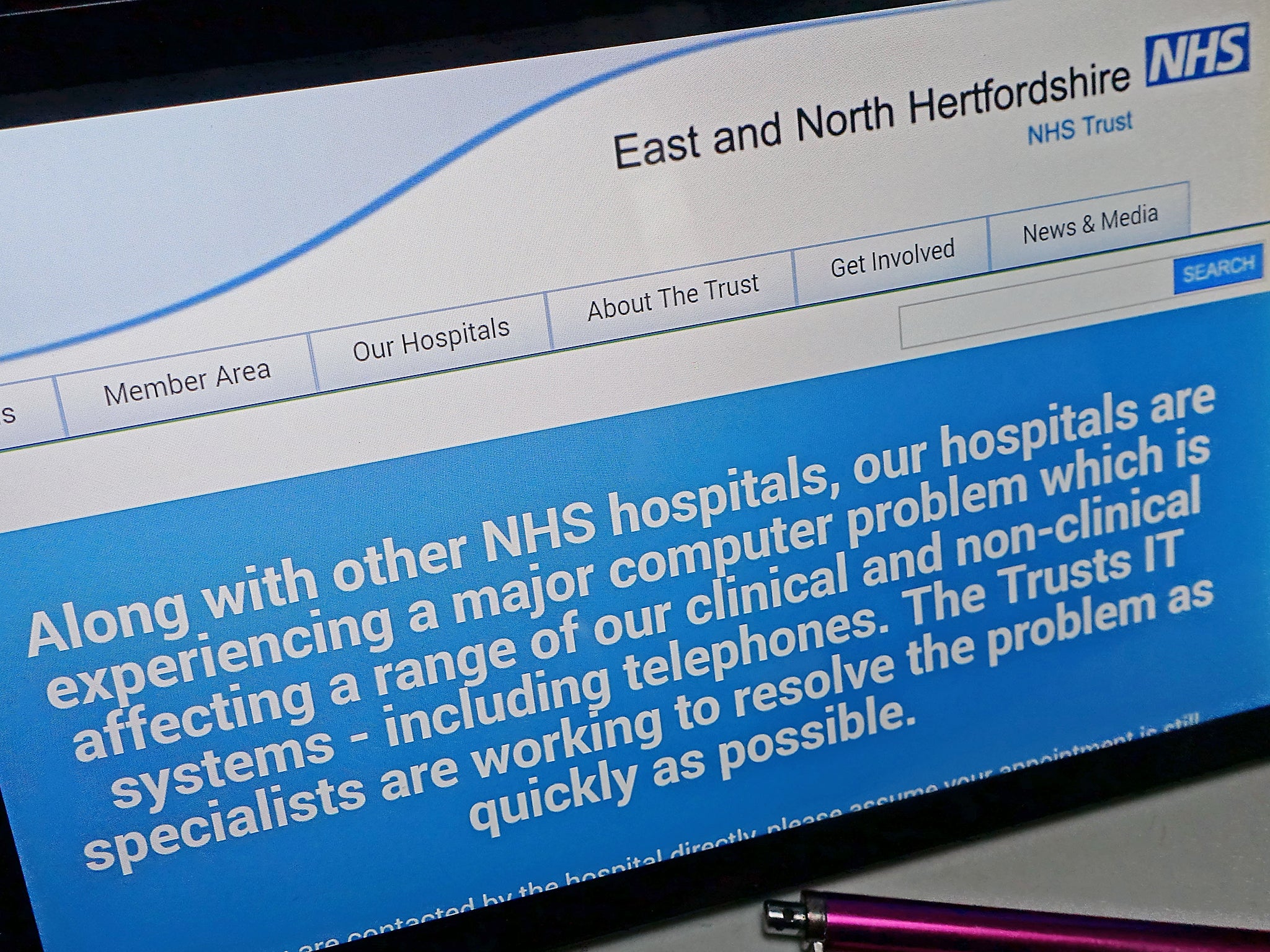Cyber attack that paralysed NHS hospitals spreads to at least 75,000 people in 100 countries
Number expected to rise when people return to work on Monday and switch on their computers

Latest estimates have suggested up to 75,000 individuals across nearly 100 countries were affected by the massive cyber attack that locked down computers and demanded a ransom.
Cyber security firm Avast said the majority of the attacks targeted Russia, Ukraine and Taiwan, although details of which computer systems were targeted in those countries remain sketchy.
The full scale of the attack is not yet known but experts believe the number affected will rise on Monday when people return to work after the weekend.
The attack, known as “Wannacry” is believed to be one of the largest of its kind, affected hospitals, companies, universities and governments, including the NHS where close to 50 health trusts are believed to have been affected.
The malicious software virus locked down machines and demanded a ransom payment of between $300-600 (£230-460) to regain access.
The Government today called a meeting of its emergency committee, Cobra, to discuss how to handle the situation. Home Secretary Amber Rudd said most of the NHS systems were back to normal by midday on Saturday.
Whistleblower Edward Snowden hit out at the National Security Council for not preventing the global attack.
The former CIA employee said it was likely the malware used in the attack was written by the US security experts.
He tweeted: “Despite warnings, @NSAGov built dangerous attack tools that could target Western software. Today we see the cost.”
Join our commenting forum
Join thought-provoking conversations, follow other Independent readers and see their replies
Comments
Bookmark popover
Removed from bookmarks